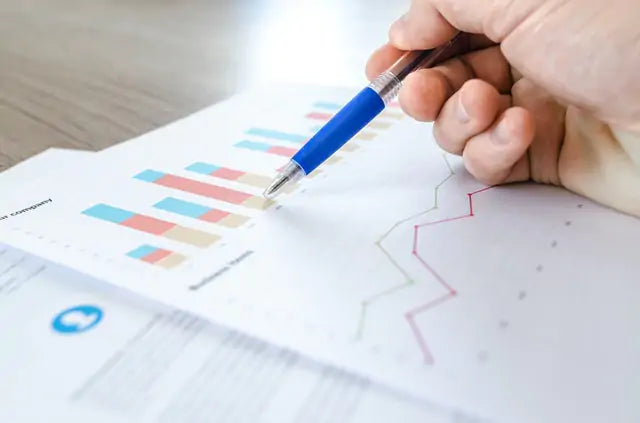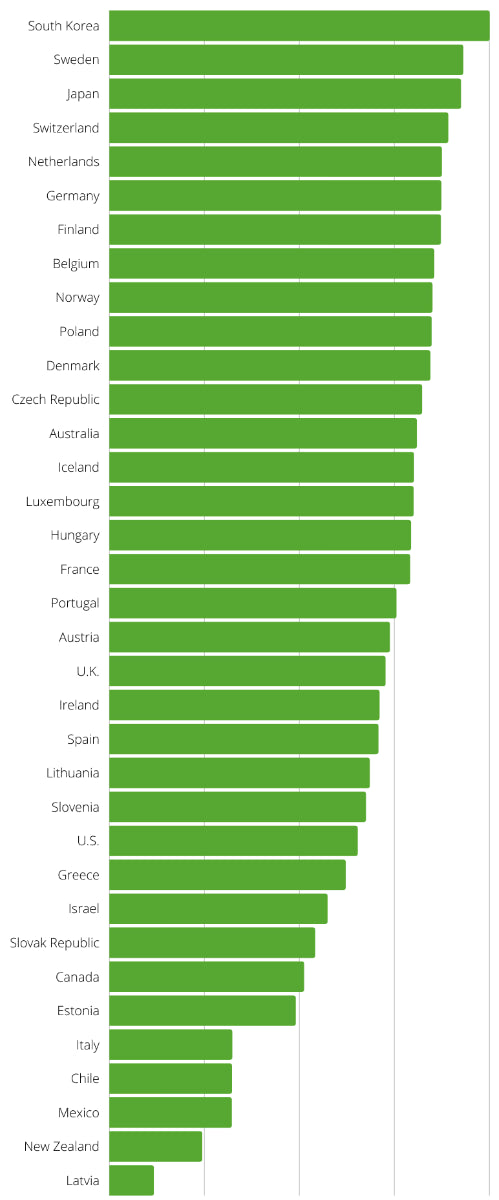Your basket is currently empty.
Shop NowUK Recycling Statistics 2021

It’s been a funny old year. One that many of us would rather not repeat. But it hasn’t been all bad. Countries came together at the recent COP26 Climate Change Conference. World leaders pledged to do more to help combat climate change, and UK recycling statistics are up, albeit slightly compared to previous years.
Has the pandemic helped with our recycling efforts? With many of us forced to spend more time at home due to national lockdowns, perhaps we are recycling more than we did before? Or are we just becoming more resourceful by reusing and reducing our household waste?
As another year draws to an end, it’s time to look back on what was most recycled in 2021. The results may surprise you.
UK Recycling 2021
You only have to read the WRAP Recycling Tracker Report 2021 to see that we’re on track when it comes to recycling in the UK. Nine out of ten households consider recycling as an established norm. But with four in five homes causing cross-contamination by putting non-recyclable items in their recycling bins, it is clear that we still have a long way to go.
Here is a brief overview of some of the recycling statistics released in the WRAP report:
- 88% of UK households consider recycling an established norm. 9% admit to only recycling occasionally, and 3% say they do not recycle at all.
- 52% of us recycle more than we did a year ago.
- 18-34s are more likely to recycle than any other age group.
- Households with younger children aged 0-12 recycle more than those with older children.
- 55% of British households place items that could be recycled, such as foil, aerosols, and plastic detergent bottles, into their general rubbish bins.
- 85% of us contaminate our recycling bins with items such as drinking glasses, toothpaste tubes, and plastic film lids.
- On average, we dispose of 6.1 items incorrectly when sorting our household waste, putting non-recyclables in our recycling bins and recyclables in our rubbish bins.
- While three-quarters of us admit to checking recycling information on product packaging, research shows that up to 76% of us misunderstand what recycling labels mean.
To help us overcome our recycling problems, we need clear instructions on what can and can’t be recycled and consistent package labelling. WRAP plans to collaborate with local authorities in the UK to improve these areas and help us all achieve our recycling goals.
What We Recycled Most This Year
Despite all the confusion, we are recycling more in the UK. We currently rank 17th on the Global Waste Index, coming just behind Austria and one step ahead of our neighbours in Ireland. It takes into consideration how much waste is generated, how much is recycled, incinerated or sent to landfill.

As a nation, we’re making an effort to Reuse, Reduce & Recycle, and this is what we have been busy disposing of this year:
Paper & Cardboard Recycling Statistics UK 2021
With more of us shopping online, it is no surprise that Amazon reported a record performance in 2020. Over 2.8 billion parcels were sent throughout the UK last year, creating a whole lot of packaging. Fortunately, most modern packaging materials are 100% recyclable, and paper and cardboard are the things we recycled most in 2021.
According to Statista, we recycle around 80% of paper and cardboard in the UK each year. We could increase that to ninety or even ninety-five per cent if we put every piece of paper packaging in our recycling bins, so this is one area we can all improve on.
Metal Recycling Statistics UK 2021
Metal is the second most recycled material in the UK in 2021. Steel is the most recycled metal nationwide, followed by aluminium and copper. Drinks cans and food cans are relatively easy to recycle. We recycle over 2.5 billion cans in the UK every year. However, we can still do more.
Those aluminium cans in your rubbish bin can be recycled, refilled, and on shelves in less than six weeks. But we’re only recycling 71% of this type of household waste. Make metal recycling your priority in 2022, and we could easily reach government targets next year.
Glass Recycling Statistics UK 2021
Glass is another item that is easily recycled. But we recycle just 67% of it in the UK each year. The reason for this is likely confusion, as not all glassware is recyclable. Glass bottles, jars, and condiment containers can go into your recycling bin for collection by your local authority. All items should be emptied, rinsed, and recycled with the lids intact.
Wine glasses, Pyrex dishes, broken mirrors and lightbulbs are not suitable for recycling and should not go in your recycling bin. The reason? They are pre-treated during the manufacturing process and have different melting points to regular glass items.
Are deposit schemes the answer to our glass recycling problems? According to a report by finder.com, 58% of Brits said they would be “very likely” to use a deposit scheme if it was available. A further 54% said they would return glass bottles in exchange for cash.
Plastic Recycling Statistics UK 2021
Plastic waste remains one of the most pressing environmental issues we face today. It’s clogging up our oceans, killing our wildlife, and polluting developing nations. According to Statista, we generate over two million metric tons of plastic waste in the UK each year, equating to roughly 36kg per person. Sadly, we recycle just 43.8% of plastic packaging waste.
Due to our lack of recycling facilities, we send much of our plastic recycling materials overseas. In 2020, we exported 0.54 million metric tons of plastic waste abroad. Much of it went to Turkey, which (unsurprisingly) happens to be the worst country in the world at managing waste on the Global Waste Index.
While 92% of UK adults admit to being concerned about plastic pollution, many find plastic recycling confusing. The UK government needs to improve plastic labelling. This will help consumers know which items go in which bin. However, for now, they have decided to introduce a Plastic Packaging Tax. From April 2022, this tax will apply to all plastic packaging that doesn’t have at least 30% recycled content.
WEEE E-waste Recycling Statistics UK 2021
If you plan to buy a new Smartphone, iPad, games console or TV this Christmas, please dispose of your old tech responsibly. If not, you’ll contribute to the 57.4 million tonnes of Waste Electronic and Electrical Equipment or WEEE that we expect to produce in the UK this year.
Technology may have changed our lives for the better, but it’s not doing our planet any favours. We need to recycle more E-Waste than ever before if we are to keep up with the demand for new gadgets and devices.
To meet Environment Agency recycling targets, we need to recycle over 500,000 tonnes of household WEEE by the end of the year. If you are not sure how to do this, contact your local authority. There are WEEE collection points throughout the UK, and up to now, we have only recycled 47.5% of our goal.
Recycling Goals 2022
We can recycle so many items these days. Therefore, there is no need to fill up our rubbish bins with household waste. Many high street stores will take back your unwanted clothes, charity shops will take much of your unwanted goods, and TerraCycle will recycle almost everything else.
If there’s one New Year’s Resolution we should all make in 2022, it is to recycle more. You’ll find all the inspiration you need right here on our blog.
